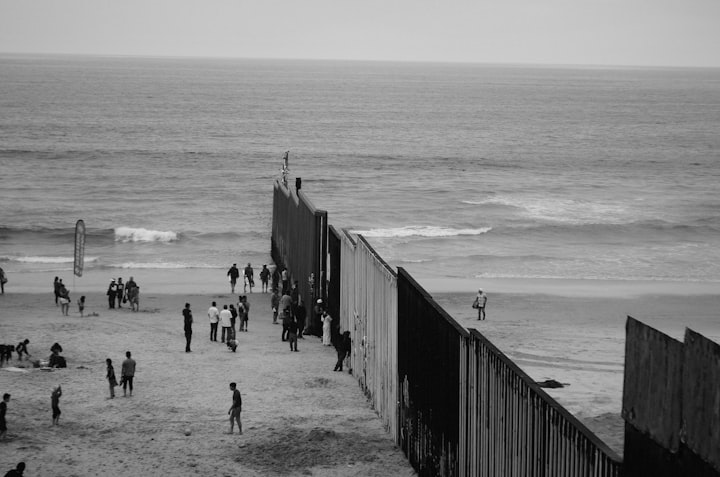"Beyond Borders: The Pursuit of Global Citizenship"
"Navigating Boundaries in a Fractured World"
Adam stood in the heart of a busy capital city. He maneuvered through the crowds of people, holding onto an old briefcase firmly to his breast. He was unique, not only in looks but also in his point of view. He was a seeker of truths that cut beyond boundaries, a believer in a world unified by common humanity. Adam couldn't help but notice the diversity that surrounded him as he walked through the crowded streets. The colorful combination of languages, cultures, and customs caught his interest and increased his commitment to bridge the gap between people. He knew that truly global citizenship entailed accepting and appreciating our diversity while also acknowledging our common goals for peace and understanding. He believed that by encouraging discussion and building empathy, we might create a more fair and pleasant society.
His desire for citizenship came from his own perception of differences rather than from privilege. He had seen the gap that belied the idea of equality between the luxurious towers and poverty slums. He thought recognizing and correcting this inequality was essential to being a true citizen. In his pursuit, Adam got a range of responses. Some applauded him as a visionary and supported his goals. Some mocked him, calling him an idealist who was cut off from reality. He struggled with a conflict that existed between the realities of a broken world and a true wish for harmony.
Adam found himself in the middle of a global citizenship conference one cold autumn morning. Many voices resounded in the big hall, discussing whether or not a life without borders was possible. A general sense of skepticism filled the room, casting it in doubt. One speaker, dressed in academic attire, declared, "Global citizenship is a myth. Unity is an unrealistic concept as nations passionately defend their interests. "He sat there, listening deeply, his views tested but unshaken. "While borders may physically divide us, our unity exceeds these boundaries," he said, his voice calm but compelling. Our actions have an impact on lives far beyond our immediate spheres. True, the road to citizenship comes with difficulties, but our common humanity requires that we strive for it. The comments lingered in the atmosphere, provoking thought. The discussion went on with a variety of viewpoints, each contributing a different aspect to the complex picture of global citizenship.
He took comfort in examples that validated his views in the wake. He came into contact with a group of volunteers who were working nonstop to assist refugees, their compassion eliminating nationality differences. He saw a community come together to fight a worldwide catastrophe and reach out across borders. However, I was unable to ignore the canvas's darker tones, which represented conflicts caused by geopolitical concerns and the walls built in the name of independence. Doubt broke at his determination. Was his vision just a case of innocence misguided by harsh reality?
Adam strolled through the city streets as the sun went down that day, the symposium's discussion still fresh in his mind. Among the chaos of ideas, a silent realization surfaced. He came to see that being a global citizen was a journey rather than a destination, requiring ongoing effort to achieve empathy, understanding, and shared responsibility. So, one step at a time, Adam carried on with his quest as a torchbearer of values, negotiating the difficult way toward a more united humanity. Adam's journey into the unknown revealed a variety of cultures and viewpoints that contradicted his expectations. He came to see that in order to truly be empathetic, he had to get out of his comfort zone and actively listen to the experiences of others. Through his engagement, he was able to understand many points of view and develop a sense of group responsibility for building a more inclusive society. He saw that developing empathy requires constant learning and development. He came to see that empathy is a skill that can be developed rather than just a trait.
About the Creator
Isabel Martinez
A passionate writer, experimenting with genres and forms, inspires imagination and originality. Expands traditional storytelling, bringing fresh viewpoints and creating engaging narratives.







Comments
There are no comments for this story
Be the first to respond and start the conversation.